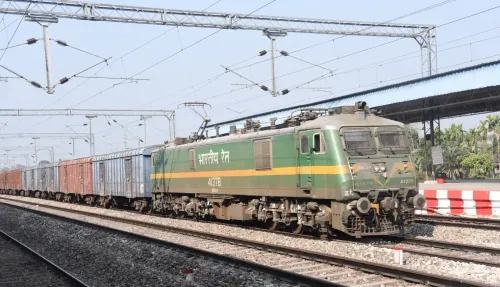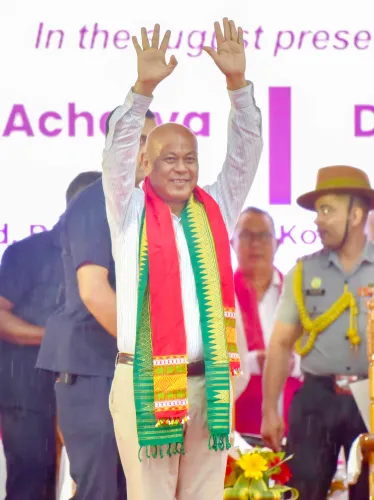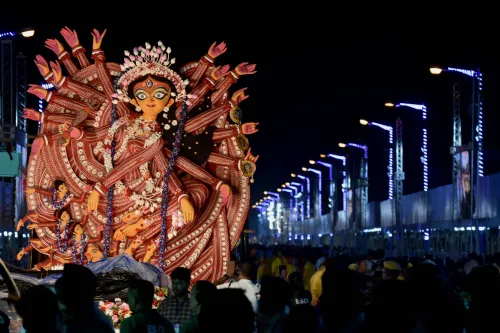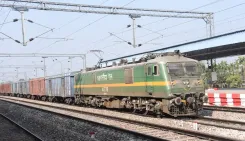IMEC: A Unique Initiative Praised by Experts and Diplomats
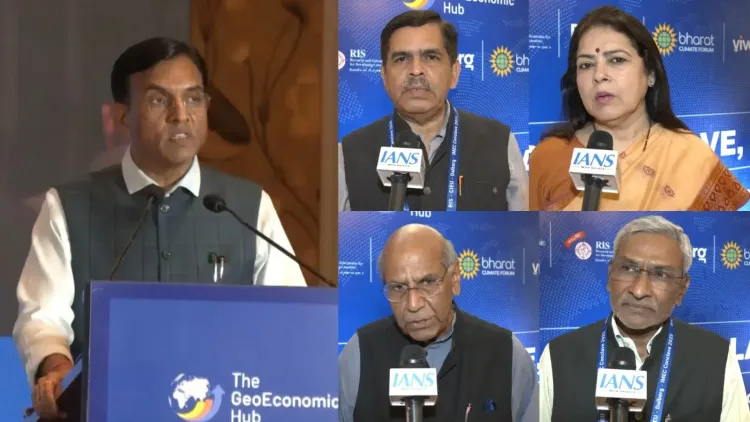
Synopsis
Key Takeaways
- IMEC promotes cooperation among multiple nations.
- Unique from the Belt and Road Initiative, which has faced criticism.
- A long-term project with significant economic benefits.
- Historical context underscores India's strategic position.
- Links to dynamic economies in West Asia, Central Asia, and Europe.
New Delhi, April 16 (NationPress) The India-Middle East-Europe Economic Corridor (IMEC) is attracting significant global attention and is viewed as a beacon of integrated progress. Esteemed diplomats and experts from the country have praised this initiative. What differentiates the IMEC from other corridors is its inclusive nature, as it is not controlled by any single nation but aims to unite multiple countries across Asia, the Middle-East, and Europe with shared objectives.
During the IMEC summit, Professor Ashwani Mahajan, a Board Member of CIEU and Co-Convenor of Swadeshi Jagran Manch, remarked that while India is the lead nation proposing this project, every participating country will play a crucial role in its execution.
He stated, “There has been extensive dialogue and progress surrounding the Belt and Road Initiative (BRI), which encompasses over 60 nations across various continents. However, the BRI is not just about enhancing trade routes; it often resembles a form of trade trap diplomacy. Countries like Pakistan, Sri Lanka, Bangladesh, and several African nations have encountered debt challenges due to it. In light of the COVID-19 pandemic, alternative initiatives like the India-Africa Corridor have surfaced. Notably, the India-Middle East-Europe Economic Corridor (IMEC) emerges as a promising venture, fostering the welfare and collaborative growth of all involved nations,” he emphasized.
Dammu Ravi, Secretary (Economic Relations) at the Ministry of External Affairs, noted that the true value of IMEC will be seen over the long term.
“As the corridor evolves, it is set to bring economic advantages to all participating nations. From India’s standpoint, as the launch point of IMEC, we have a particularly vital role in its advancement and success,” he stated.
Meenakshi Lekhi, a Board Member of CIEU and former Minister of State for External Affairs, commented: “Historically, India was a maritime hub 2,000-5,000 years ago. In today’s world, facing numerous challenges related to exports and sustainable road development, it is crucial to explore innovative pathways for progress.”
Former Foreign Secretary Shyam Saran remarked: “This should be viewed through a historical perspective. India has traditionally been at the crossroads of maritime routes connecting the East and West, as well as ancient caravan paths to Central Asia and China. What we observe today is a reconnection along those historic routes.”
“The importance of IMEC lies in its ability to link us to a rapidly evolving region within the global economy—West Asia—and further bridge connections to parts of Central Asia and Europe. This corridor project is of strategic significance, and we must consider it within this larger framework,” he added.

